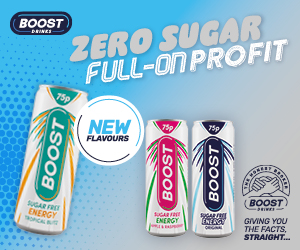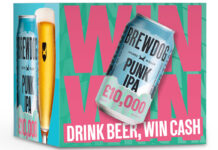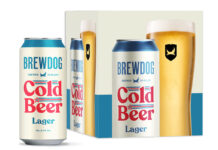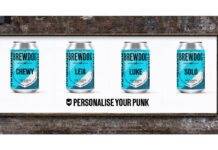MAINSTREAM lagers might still provide the biggest beer sales in the off-trade but other parts of the business especially craft beers are very exciting.
In its just-released members survey the UK’s 850-company Society of Independent Brewers (SIBA) paints a confident picture for craft brewers.
Some 80% of the brewing firms expect turnover to increase in 2016 and one in six of the breweries plan to double turnover by 2018.
Beer production at the independent breweries increased by 15% last year and the firms expect to increase production of bottled and canned beers significantly in 2016.
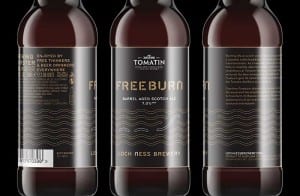
SIBA had 51 member companies in Scotland last year and more independent breweries are scheduled to launch.
It’s probably fair to say that light coloured ales, especially IPAs dominate take-home craft beer in Scotland and the rest of the UK at present.
Certainly Brewdog’s Punk IPA did very well indeed last year in Scotland’s off-trade. Last month’s Scottish Grocer’s Nielsen most valuable off-trade brands survey showed that in 2015 it almost doubled sales to reach nearly £1.2m.
If an independent or symbol store wants to go down the craft route it will have to source its beers and the good news is that more of the wholesalers are carrying a selection, there are also a number who have developed a more specialist role and it is often possible also to deal with nearby craft breweries directly.
A typical range might include characteristic ales and beers from small, medium and these days even some very large brewing firms – there’s no agreed definition of “craft beer”.
Among the biggest brands in Scottish off-trade of craft beers and traditional premium bottled ales, in the Nielsen Scantrack figures, are Old Speckled Hen, Brewdog’s fast-growing Punk IPA, McEwan’s Champion Ale, Deuchar’s IPA, Innis & Gunn Original, Hobgoblin, Bitter & Twisted, Joker IPA, Orkney Dark Island and Arran Blonde.
So retailers may well look to carry at least some of those beers.
However, if you want to develop a reputation for craft beers you could look to list beers from your most local breweries, if the beer is good and is available in bottles or cans.
Some stores may also wish to rotate a selection of beers that aren’t easily available in supermarkets as guest beers and may also find it useful to stock a selection of season ales. There are any number available at Christmas, of course, but craft brewers also brew to mark everything from major rugby tournaments to local gala days, to Halloween and Bonfire Night.
If you have customers who are interested in craft beer but aren’t experts then it always helps if you can tell the story of the beers.
Some will have descriptions and tasting notes on back labels but think about featuring those on shelf talkers too.
While it isn’t possible under Scottish regulations to merchandise alcohol with other products or cross-promote it is possible to suggest food matching ideas. Breweries should be able to make suggestions or there are a number of books and websites that cover craft beer such as the American site craftbeer.com
You could range by brand, the breweries probably like it that way, but you could also choose to arrange by beer style.
And if you do forge a relationship with a local brewery it might be keen to carry out tastings at your store.




